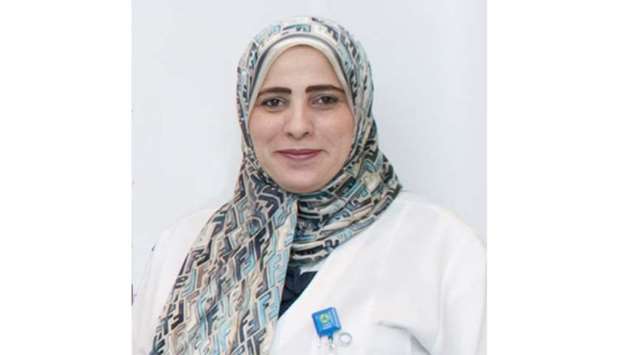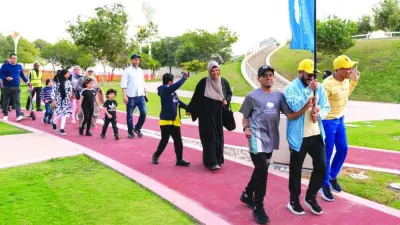A type 2 diabetes management programme developed by researchers from the UK’s University of Leicester and adapted for Qatar by a team of diabetes educators from HMC’s Hamad General Hospital has been delivered to more than 300 patients.
Diabetes Education and Self-Management for Ongoing and Newly Diagnosed (Desmond), was developed through evidence-based research and widely implemented across the UK during the past decade. Based on physical activity and healthy lifestyle changes, in 2018 a team from HMC adapted the programme from English to Arabic, a world-first for the curriculum.
In response to the Covid-19 situation, HMC has extended the hours of operation for its diabetes hotline (16099; select option 4).
This phone-based emergency service is now available seven days a week from 7am-10pm to provide individuals with all types of diabetes who are receiving care at HMC.
Manal Othman, director, Diabetes Education at HMC, says the programme has been delivered to more than 300 patients with type 2 diabetes during more than 50 sessions held at Hamad General and Al Wakra Hospitals.
“Being diagnosed can be a very stressful experience, for both the patient and his or her family. It means adopting a whole new lifestyle. Desmond is a structured self-management education programme that helps empower individuals to learn about their own long-term condition and it helps them make decisions that will support the management of their care. There is no ‘one size fits all’ approach to diabetes management and Desmond provides a welcoming and non-judgmental space where participants can learn to manage their condition,” said Othman.
“Desmond has been scientifically proven to improve well-being, adherence to prescribed medication, and weight loss. Traditionally, treatment for type 2 diabetes has centred on drug interventions and when not managed properly, the disease can lead to devastating complications such as loss of limbs, increased risk of a stroke or heart attack, and blindness, so introducing Desmond has been a major positive change to how diabetes care is delivered here in Qatar,” added Othman.
Amani Ajina, senior adult diabetes educator at HMC and Desmond co-ordinator, says the programme consists of six hours of education and generally delivered in one day or two half-days.
The programme is built around group activities and she says it works because educators help increase participants’ knowledge and understanding of what having diabetes means, empowering them to make their own decisions.
“Participants learn about a variety of topics, including risk factors, complications, physical activity, and appropriate food choices. They can meet and talk to others in their same situation, sharing experiences and talking about what type 2 diabetes means to them. The sessions are delivered in an informal and friendly atmosphere,” added Ajina.

Manal Othman


